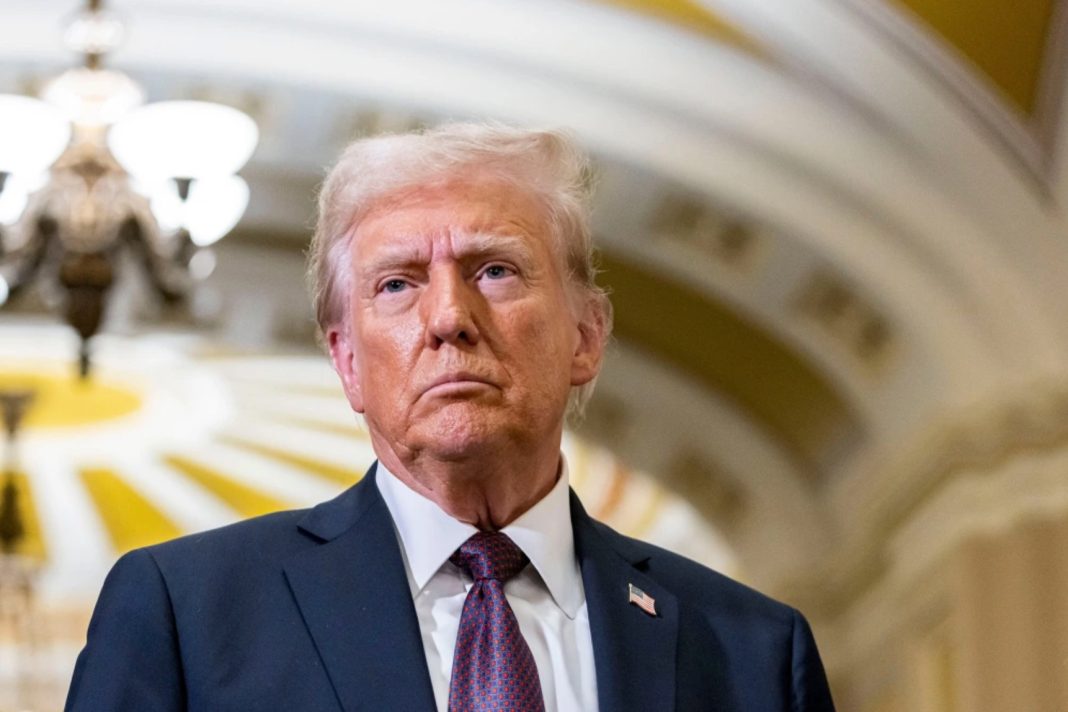WASHINGTON, USA — The United States has launched direct military strikes on three key nuclear sites in Iran, inserting itself into Israel’s ongoing war effort in what marks a significant escalation with potential global ramifications.
President Donald Trump confirmed the airstrikes in a national address on Sunday, June 22, 2025, declaring that Iran’s Fordo, Isfahan, and Natanz nuclear facilities were “completely and fully obliterated.”
— Donald J. Trump (@realDonaldTrump) June 22, 2025
The announcement followed more than a week of Israeli attacks targeting Iran’s air defences and missile capabilities.
“This is an HISTORIC MOMENT FOR THE UNITED STATES OF AMERICA, ISRAEL, AND THE WORLD,” Trump wrote on social media.
“IRAN MUST NOW AGREE TO END THIS WAR.”
— Donald J. Trump (@realDonaldTrump) June 21, 2025
The Pentagon has yet to provide a full operational briefing, but U.S. officials confirmed that American B-2 stealth bombers deployed the GBU-57 Massive Ordnance Penetrator, a 30,000-pound bunker-buster bomb used for the first time in combat.
The weapon is capable of penetrating fortified underground facilities, such as Iran’s heavily shielded Fordo nuclear site.
In parallel, U.S. Navy submarines reportedly launched approximately 30 Tomahawk missiles against additional Iranian military infrastructure.
Officials spoke on condition of anonymity due to the sensitivity of the operation.
“All planes are now outside of Iran air space. A full payload of BOMBS was dropped on the primary site, Fordow. All planes are safely on their way home,” Trump said in a social media post.
Iran’s Atomic Energy Organization confirmed the strikes but claimed there were no casualties, radioactive leaks, or threats to surrounding civilian areas.
Iran reiterated its long-standing position that its nuclear programme is peaceful.
Iranian Supreme Leader Ayatollah Ali Khamenei, who had earlier warned of “irreparable damage” if the U.S. intervened militarily, has not yet issued a formal response to the attacks.
Iranian Foreign Ministry officials have said any further American involvement would “trigger an all-out war in the region.”
Israeli Prime Minister Benjamin Netanyahu praised Trump’s decision in a televised address, calling it a “bold and righteous” move that “will change history.”
“This is a turning point in our battle to prevent Iran from obtaining a nuclear weapon,” Netanyahu said.
“The United States has done what no other country on earth could do.”
In response to the attacks, Israel announced a temporary closure of its airspace to both inbound and outbound commercial flights.
U.N. Secretary-General António Guterres issued a statement expressing alarm at what he described as a “dangerous escalation” with “catastrophic consequences for civilians, the region, and the world.”
“There is a growing risk that this conflict could rapidly get out of control,” he warned.
The International Atomic Energy Agency (IAEA) confirmed that Fordo was one of Iran’s active sites for uranium enrichment.
While no environmental contamination has been reported, concerns persist about the long-term implications of the bombing on nuclear safety and global non-proliferation efforts.
The strikes come despite Trump’s longstanding opposition to protracted U.S. military entanglements.
Critics, including voices within his own MAGA movement, have expressed concern that the move betrays his pledge to avoid new foreign wars.
White House Press Secretary Karoline Leavitt had stated on Thursday, June 19, 2025, that Trump would take up to two weeks to decide on military intervention.
The airstrikes were launched less than 48 hours later.
Trump is said to have made the decision after two months of unsuccessful diplomatic outreach to Iran and repeated Israeli appeals to deploy American firepower.
The calculation, sources say, was that the Israeli offensive had sufficiently degraded Iranian air defences, creating a rare opportunity to permanently damage the country’s nuclear infrastructure.
The Houthis in Yemen, backed by Iran, have threatened to resume attacks on U.S. vessels in the Red Sea.
Iran’s regional allies, including militias in Iraq and Syria, have also issued warnings of retaliation.
Meanwhile, Human Rights Activists, a Washington-based group, reports that Israeli strikes over the past nine days have killed at least 865 people in Iran, including 363 civilians and 215 security personnel, with over 3,300 wounded.
The military campaign comes years after Trump unilaterally withdrew the U.S. from the 2015 Iran nuclear deal, formally known as the Joint Comprehensive Plan of Action (JCPOA).
That agreement, brokered under President Barack Obama, had imposed limits on Iran’s uranium enrichment in exchange for sanctions relief.
Trump has consistently described the JCPOA as “the worst deal ever,” arguing it failed to constrain Iran’s regional behaviour and merely delayed rather than ended its nuclear ambitions.
While Trump insisted on Sunday, June 22, 2025, that ground troops are “the last thing you want to do,” he warned that Iran must not retaliate.
“There will either be peace or there will be tragedy for Iran,” he said.
A Pentagon press briefing is scheduled for 8 a.m. (ET) on Sunday, where military officials are expected to release additional details of the strike and assess next steps.
For now, the world watches with bated breath as the region stands on the brink of wider war.







